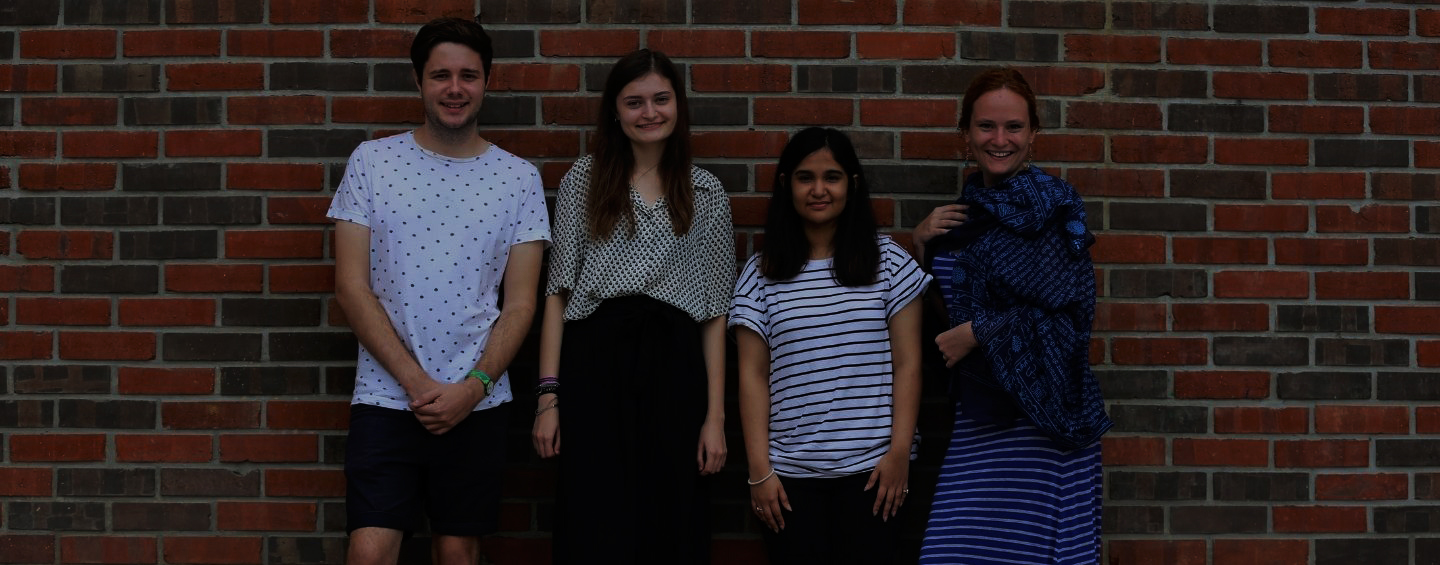Ashoka University’s Department of Media Studies offers undergraduate programmes which teach students to become responsible and creative media professionals. The courses offered by the Department introduce students to media ethics, law, context, history and other required creative and practical skills. The Department provides holistic exposure to journalism, media communication theories and film studies.
Building media literacy in an age of rapid technological advancement and globalized politics is fundamental. Our students are encouraged to understand the link between active citizenship and media consumption in democracy.
Through a range of courses these questions are navigated via class discussion, analysis and fieldwork, and empower students to enter different fields of communications and media- whether as practitioners or scholars.
Ashoka University’s Media Studies programme will reflect critically on several key questions.
Our department is committed to promoting media content that is ethical, responsible, credible, contextual, and respectful of diversity of background and belief. The Media Studies department is set apart from others in its pedagogical approach. Our motto is learning by doing.
Minor and Interdisciplinary Major requirement – Students must complete six courses in Media Studies. Only two mandatory requirements apply.
1) ONE gateway 1000-level course – MS 1201 Media, Culture and Society – is mandatory.
2) The completion of at least one course from each level, 1000, 2000 & 3000. All students pursuing a Minor and Interdisciplinary Major in Media Studies are required to do at least one course at each learning level- 1000, 2000, 3000. (For those who wish to explore other streams, the mandatory course will fulfil this 1000-level requirement).
Concentration requirement– Students must complete four courses in Media Studies. One gateway 1000- level course – MS 1201 Media, Culture and Society – is mandatory.
Students are free to choose their remaining three courses from the department’s wide range of electives. The department encourages students to choose one course at each level.
A) One Mandatory Course
One 1000-level gateway course – MS 1201 Media, Culture and Society – is mandatory for all aspiring Media Studies students. This course provides a broad-based understanding in communications and media theories and their practical applications in the real world.
• For the Academic year 2022-2023, this course is being offered in both semesters.
• All MS interested students are advised STRONGLY to read the full course description at registration time. The details of timetable, grading and attendance policy, learning outcome are often furnished in granular detail and allow students an informed choice.
B) Electives
Students are free to choose the rest of their courses from a range of electives at introductory, intermediate and advanced levels. Our courses are curated across different streams of the media – journalism, film studies, communications research and content production. They are taught on a regular basis, allowing our students maximum choice and range.
· Journalism-based courses replicate newsrooms and editorial meetings. Through a well-equipped Media Lab, students gain hands on experience working with audio-visual technologies and learn in live broadcast situations. Writing courses produce OpenAxis.com, an analytical news and current affairs magazine run entirely by students under faculty supervision, on WordPress.
· Film-based courses contribute to the growing multidisciplinary spirit of Liberal Arts at Ashoka University. Students study film theory and the history of world cinema and major cinematic movements. They take deep dives into India’s cinema landscape- its big budgets and its social messaging. In an ethos of excess how do we understand film as a medium, as practice, and as a space of representation.
· Communications theory and research-based courses ask some fundamental questions- what is the history of human thought on media and technology? In what societal frameworks do some major thinkers emerge? These courses will also teach students how to formulate the right questions, and use research methods as a practical and important skill to understand audiences, social and behavioural change.
· Our content creation courses are practical, and skill based. Students learn how to handle media equipment and how to shoot and produce media material like podcasts or short video films.
They also learn video editing, lighting, still photography and behind the scenes production functions.
In the Ashoka spirit of interdisciplinary learning – many Media Studies courses are cross-listed with other departments. Please see the course codes carefully.
Audit requests will not be considered for media lab-based courses as equipment is limited and students enrolled full time, get first priority.
But since courses are offered across craft of writing/journalism/content production/Film/Communication Theory & Research, please do write to the course Professor/TA directly, as all professors have full autonomy in deciding this, for non-media lab-based courses.
Department of Media Studies Handbook

Ashoka University’s Department of Media Studies offers a unique blend of undergraduate programmes which train students to become proficient media professionals. The Department prepares students and aspiring journalists with a comprehensive understanding of how different layers of the media function in contemporary times. The various courses arm students with rich theoretical knowledge of media processes, an understanding of media history, and the simultaneous application of that knowledge to practical situations on the ground.
One 1000-level gateway course – MS 1201 Media, Culture and Society – is mandatory for all aspiring Media Studies students. This course provides a broad-based understanding in communications and media theories and their practical applications in our real world.
It is mandatory to complete at least one course at each level. This means, a student must take at least one 1000-level course, one 2000-level course, and one 3000-level course of their choice.
This will come into effect from the upcoming Academic year 2021-2022, and will be a requisite for the UG 22 and ASP’22 graduating batches.
The mandatory course – MS 1201 Media, Culture and Society – for both UGs and ASPs will be offered by the Media Studies Department in the Spring 2022 semester.
